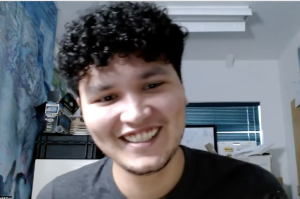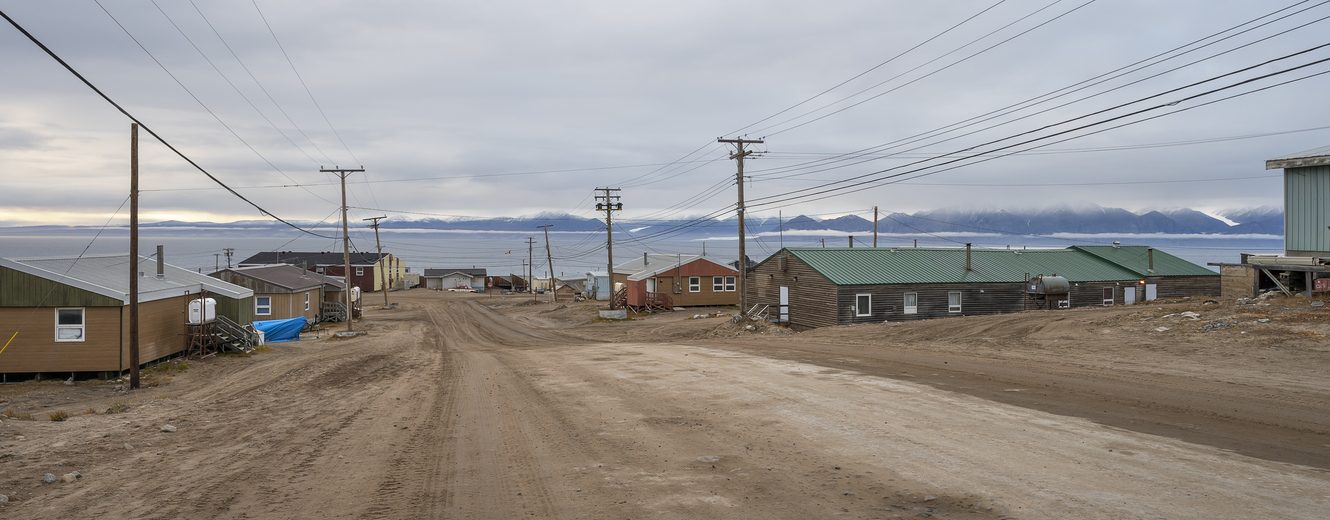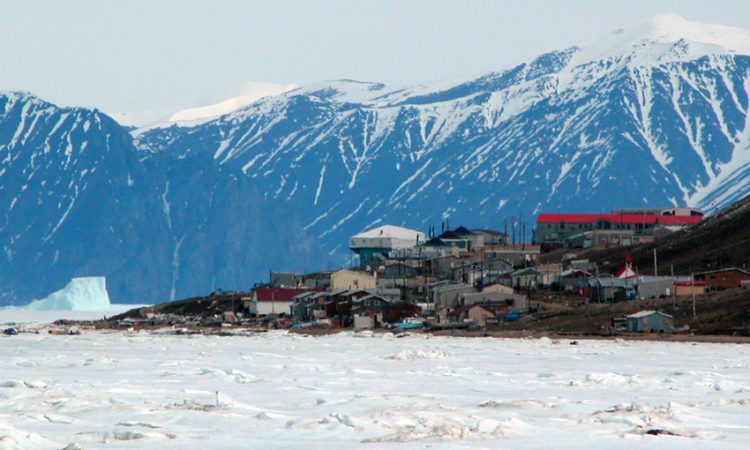|
Getting your Trinity Audio player ready...
|

Michael Milton, Community Coordinator for Ikaarvik, grew up and lives in Pond Inlet, Nunavut – a community of about 1,500 people accessible only by sea and air. While not without challenges, life on the northeastern tip of Baffin Island is rich in community, knowledge sharing and culture. Michael spoke with CareerWise Editor Lindsay Purchase about his career and educational journey, his experience with travelling south for school and how he supports youth career exploration.
This interview has been edited for length and clarity.
What was it like growing up in Pond Inlet, Nunavut?
I grew up quite a bit with my grandparents, hunting and camping for a lot of my early years. We have only two schools. We get 24-hour darkness in for about three months of the year. We live in a very small, isolated community.
It’s a growing community. There are places that felt like wilderness when I was a kid that are now actual neighbourhoods. But even now, we only have two stores: the Co-op Store and the Northern Store.
You later went to Ottawa for school. Did you always plan to leave your community?
Our education system isn’t the best. If we want to pursue post-secondary education, there’s Nunavut Arctic College, but colleges or universities down south offer more options and career opportunities.
I didn’t always plan to go to university, but I’ve always wanted to travel. When I was 10 or 11, I found out about cadets and I heard that they have a summer camp. I did it for the whole school season, and then I went to Army Cadet camp and got to see my very first tree. I got to go to Yellowknife in the Yukon, and it was just an incredible experience.
Then, when I was 16, I got recommended to apply for Students on Ice, and I got help with my application from the student support teacher. I didn’t know too much English, so she helped me articulate it. I got accepted, got the scholarship and I got to go to Greenland and meet youth from all around the world. And it was just an incredible, mind-blowing adventure.
We had a lot of Inuit advocates, adventures, storytellers, musicians and just incredible guides, and that that opened up two massive things for me. One is that the Arctic is an ever-changing thing, and science is doing great work. The Arctic really, truly matters, and people are in awe of it. And two, this is something I want to do again and again for the rest of my life.
Did that influence your decision to go to post-secondary?
Because of that, I wanted to travel more. I had absolutely had no idea where to start, but my older cousin went to a post-secondary program called Nunavut Sivuniksavut. I got accepted and went to a proper city for the very first time in my life. When I got to Ottawa, it was crazy – the concrete jungle. I was told to go slow, but it’s wild, there’s so many more options. Everything’s cheap. The culture is very different.
It was a huge learning curve, being in the city, budgeting and seeing how the real world works. My older cousin was my mentor, my role model, to help me through a lot of what he learned the year previous.
Did you have support from the school?
Yeah, lots of support from the school. They know what it’s like, and everyone’s a little different, but it’s all the same when it comes to culture shock. Just incredible people, great guides, great mentors, great teachers that showed us a lot of what the city has to offer.
Did you work while you were in Ottawa or during high school?
When I went for post-secondary, we had financial assistant for Nunavut students, and we got money to pay for our bills, and we had food money and stuff.
In high school, I was working at the Northern Store as a stock boy. I made a lot of friends there and talked to people in the community.
Later, I was an assistant for a water-quality research project. That’s how I got to know people from Ikaarvik, where I work now. Our aim is to bridge Inuit youth with Southern scientists and researchers to have meaningfully engaged research based on community priorities led by Inuit youth.

Tell me more about the research work your organization is doing.
Researchers can do better research by engaging with the local community more. People that grew up here are constantly observing the changes that are happening in the Arctic.
It’s learning from each other in how methodologies and research and ethics work, and Inuit culture and knowledge and ways of life. It’s not just like this cold, hard science, where we just extract knowledge. We observe what’s changing and we share it with each other so that we can help each other. Ikaarvik has been a huge advocate for co-led research within Inuit at the helm. Research is a way of life, and that’s how Inuit survived and thrived up here for many, many generations.
What do you think people who live in Southern/urban areas might not understand about youth’s education and career exploration journeys in remote or Northern areas?
It’s a bit of a struggle, because the job market’s not huge by any means. There’s not too many private businesses in Pond, and when it comes to just basic services, like eye doctors – they come like once every six months. We don’t have a hair salon or barber shop here.
I’ve gotten very lucky, been very curious and tried to seize every opportunity. Not knowing what I’ve always wanted to do, I just explored things. I want to help other Inuit youth be able to have all these opportunities as well to show my story, to be able to guide them.
How do you talk about career development with the other youth you work with?
I believe different types of educational opportunities that people have outside of school will truly help sculpt what you want to do in life.
I was a youth participant [at Ikaarvik]. I worked my way up, and now I’m working full time, and I have my own group of youth. There were Inuit that I looked up to, that were our mentors. Now I’m one of them, right? The people I grew up with, they have their own careers ahead of them and are doing incredible things, so I can expose youth to all these different opportunities.
With different youth, they have their own skillsets, their own personalities, but what I tell them is, just try to seize everything. Even if it piques your interest just a little bit, it can further your education. If you don’t like it, just walk away. No harm done. You learn something about yourself.
It might be difficult and you might fail. I’ve applied to many things I have not gotten but here I am. I have a full-time job. I enjoy what I do. I love my co-workers, and I really enjoy being with the youth, being able to contribute to the education in town, going on cruise ships and informing passengers from all around the world what Inuit culture actually is.




